It’s been a year of endings and beginnings in Brown County.
We asked Brown County Democrat readers and current and former staff members to weigh in on what stories had the greatest impact on or importance to the community this year. Here they are, in order.
1. Andy Rogers’ estate changes hands
The auction room at the History Center on Oct. 30 was a who’s who of Brown County. Every corner and cranny was packed with people — some there to bid, but most of them just to watch — as Andy Rogers’ commercial properties in Nashville were auctioned.
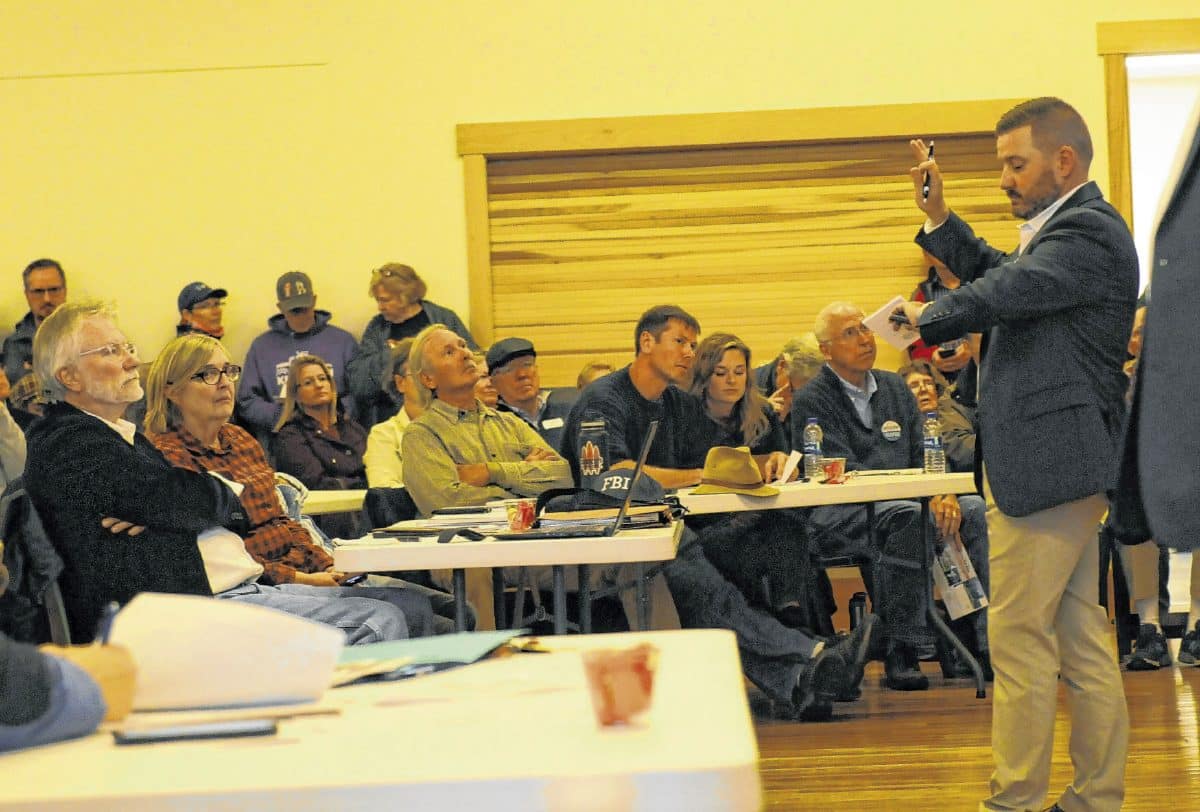
Rogers, considered by many to be the father of Nashville’s business community, died in July 2018. In the fall of 2019, it was announced that his commercial properties would be sold at auction. They included roughly a third of downtown Nashville — the homes of about 25 shops frequented by tourists for decades.
Some of those tenants were nervous about their futures. Individual shops were not being sold; most of the buildings were listed in larger groups, limiting the pool of potential buyers.
In the end, tenants and visitors had little to fear. Nearly all of the commercial buildings and properties were bought by local people, several of whom said they plan to make few changes.
The Franklin Square complex at the corner of Franklin and Van Buren streets, housing shops such as the Lawrence brothers’ glassblowing studios and Fearrin’s Ice Cream, went to Barry and Debbie Herring, owners of the Brown County Inn.
The buildings housing September Elm, Jack and Jill Nut Shoppe and The Totem Post were bought by shopkeepers Marc Rudd, Kelly Rudd and Liana Franklin before auction day. Bruce and Rhonda Kay Williams also bought the building that houses their 58 South clothing shop before the auction.
The Professional Building was bought by a person who was not physically present in the auction room on auction day. Property transfers released in late November show that the buyer is Mark Phillabaum of northern Indiana.
The Bartley House went to Brown County resident Danielle Nolan, who was bidding on behalf of her parents.
The Antique Alley complex and Olde Ferguson House were purchased by Rogers’ youngest daughter and her husband, Lance and Andi Rogers Bartels. She also inherited the Nashville House restaurant.
In November, Andi Bartels announced that she and Lance would reopen the Nashville House this spring. Landscaping work is being done now to convert the flowerbeds in front to outdoor seating areas. That restaurant was a fixture in downtown Nashville for 91 years before it closed in the fall of 2018.
2. What happened at the overlook?
That was the question on many residents’ minds early in 2019 when they drove on State Road 135 North near the Bean Blossom Overlook and looked toward the opposite side of the road.
Logging took place around the first week of February on land owned by Brown County Parks and Recreation, on the opposite side of the highway from the expansive overlook that was cleared in 2018.

Parks and rec Director Mark Shields told the newspaper at the time that the logging was more drastic than what the department had expected. He had signed a contract with a logging company on behalf of the parks department in December 2018, but it did not mention where exactly the cut was to take place, or whether it was to be a clear-cut or a selective cut. It did say that the parks department would receive $13,000 in full at contract signing for the cut, including work done in the valley and across the road at the picnic area above the overlook.
A parks and rec board meeting in February drew a crowd of about 25 people who were upset about the logging and had questions.
Shields had told the newspaper that due to a “miscommunication” with the logging company, more trees were cut than expected. G.R. Crowder, the agent for Crowder Hardwood Properties LLC, had said that there was no miscommunication. He said his subcontractor did exactly what was stated in the two-page contract.
During the summer, Shilo Morning Drive residents and other citizens concerned about the logging packed the parks and recreation office at Deer Run Park again. But due to a possible threat of litigation, the board was advised to not answer questions from the public.
After the cut, Shilo Morning Drive residents said the logging caused sediment to enter the upper and lower lakes there, turning them into “chocolate milk.” That continued into the summer.
As of deadline, no lawsuits had been filed against the department, and no more information has come to light about the logging.
3. Music center opens, impacts community
In August, the ribbon was cut on the new Brown County Music Center, and Vince Gill took center stage for the venue’s first sold-out show.
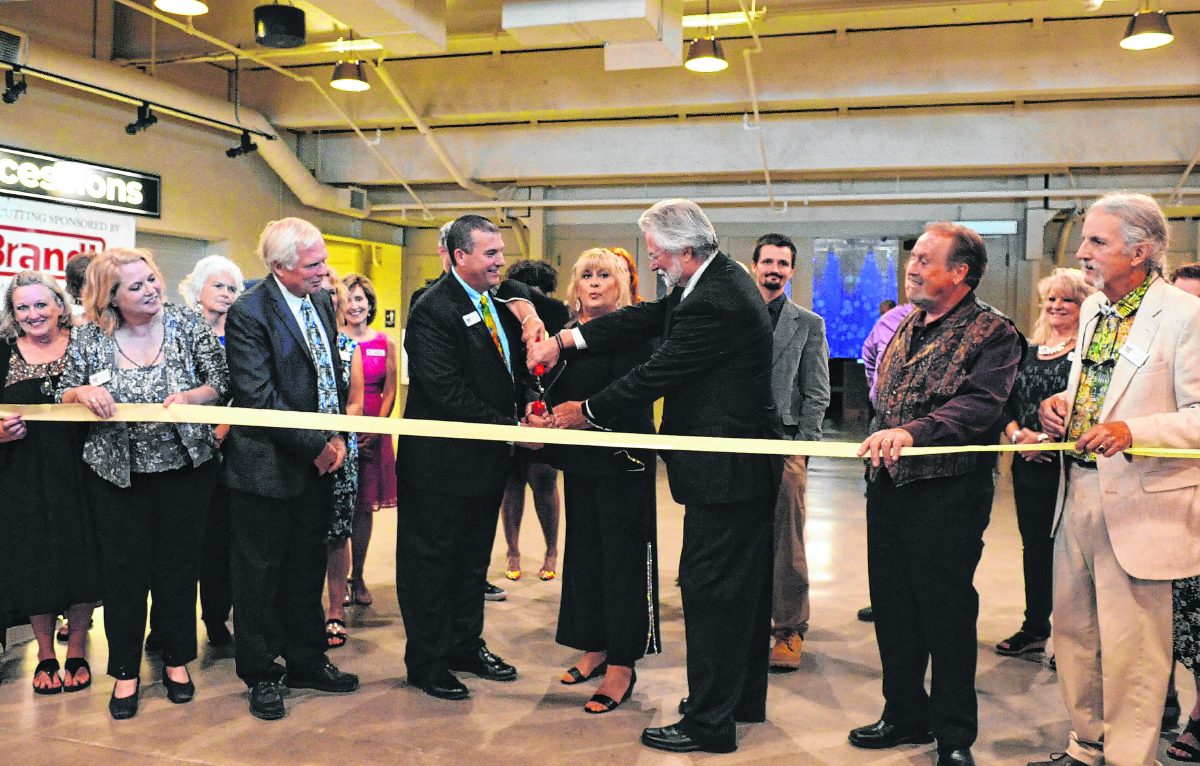
Two years ago, Barry Herring had stood before a crowd at the Brown County Playhouse to announce the plan to build a 2,000-seat music center, to fill a void that local leaders believed existed since the Little Nashville Opry burned in the fall of 2009.
At a management group meeting, members estimated at least 80 percent of the people at the Gill show were from out of town. Shops, restaurants and other entertainment venues in Nashville and Brown County reported seeing an increase in business the weekend of opening night.
The music venue continues to book national and regional acts. Famous musicians like Tanya Tucker, Clint Black, the Oak Ridge Boys, Chris Isaak and Sara Evans have all performed at the venue since its opening this summer, many to sold-out crowds.
The Beach Boys and Melissa Ethridge are just two of the big acts set to perform in 2020.
Tickets are available on the venue’s website at browncountymusiccenter.com or by visiting the box office at the venue, 200 Maple Leaf Blvd.
4. Skate park opens
For years, teenagers in Brown County have been searching for a safe place to hang out after school or on the weekends. Now, Victory Park at Deer Run Park can fill that void.

Ground was broken on the skate park in April, but local group Kids on Wheels had been working to make it a reality since 2017 when they had their first meeting at the Brown County Public Library.
Isaiah Smith proposed building a skate park to his high school principal after attending that first meeting. Isaiah’s mother, Colleen, helped to secure grant funding for the park.
It’s named Victory Park in honor of local businessman Gregg Watson who provided teens a safe place to hang out when he and his wife Lauri operated the Victory Family Fun Center. It closed in the early 2000s after his sudden death.
In October, the ribbon was cut on the new park.
At Victory Park, skateboarders can navigate a series of obstacles, including rails, a bank, raised pads and a large, stationary ball, and a giant bowl that resembles an empty swimming pool.
The park also has “teen park” elements such as a gaga pit (a circular, enclosed area for playing a dodgeball-like game), hammock swings and tire swings. Those were installed by various teen groups.
The park was built by Hunger Skate Parks of Bloomington, which builds skate parks all over the world, and by many local volunteers.
Victory Park, part of the county-owned Deer Run Park, is free to visit and is open until sunset every day.
5. Story put up for sale; longtime owner dies
In March, an interesting listing went live on the F.C. Tucker website: $3.8 million for the historic Brown County village of Story.
More than 17 acres and all the buildings owned by Story Bed & Breakfast LLP, which included the Story Inn, were part of the listing. Co-owner Rick Hofstetter, who’d lovingly restored those buildings over the past 20 years, told The Democrat that it was time to separate the Story Inn’s business from the property that housed it.
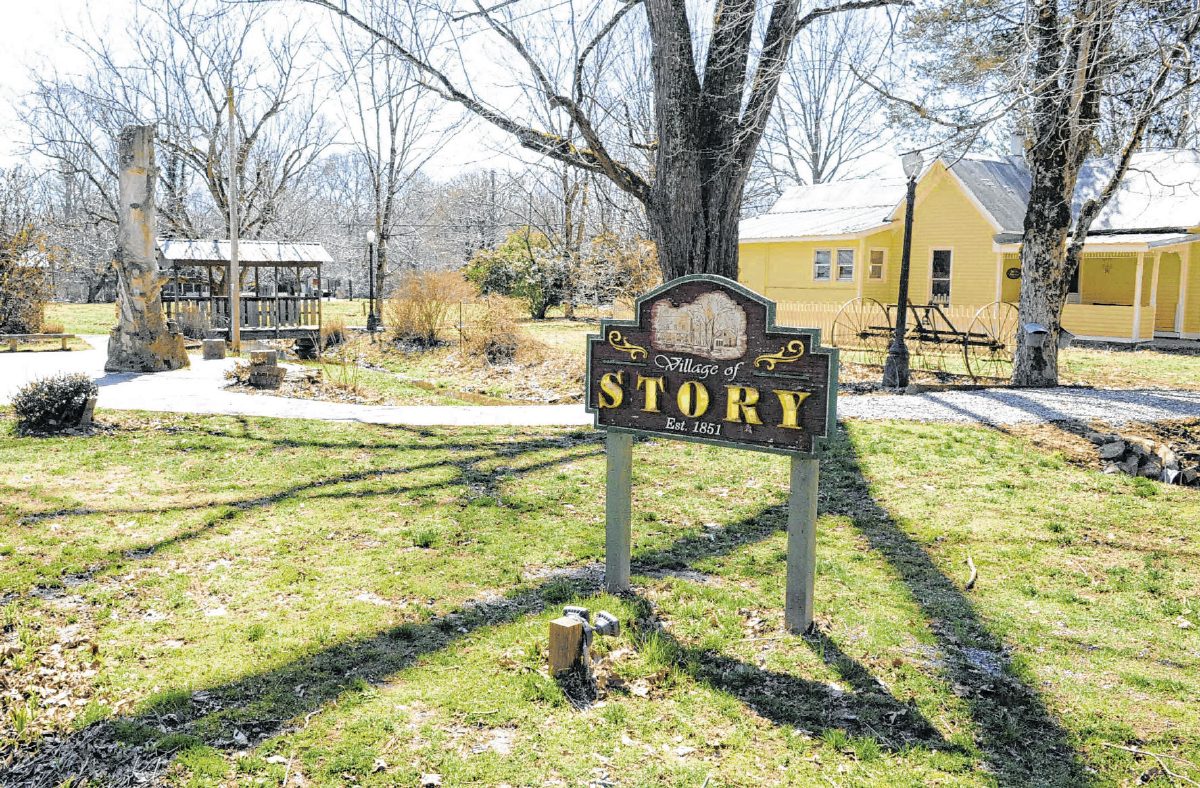
The month prior, Hofstetter and co-owners Jacob and Kate Ebel had celebrated Story getting a National Register of Historic Places designation — something Hofstetter had worked toward for two decades.
“The national register listing was a good first step, but ultimately, the town needs to stand on its own. Right now, that town is hitched to a business and that ownership structure makes no long-term sense. Macy’s doesn’t own the mall, does it?” he said.
The property did not find a buyer right away. The Ebels continued to run the business.
In October, Hofstetter’s daughter, Anna, reported that her father had died by suicide. He was 63.
She said he had quietly been dealing with multiple health problems and worries about his financial situation, and he had not agreed to seek help for what she and other loved ones believed was a long struggle with undiagnosed depression.
Organizations that focus on suicide prevention stress that the causes behind suicide are complex. Talking about it is what mental health professionals recommend.
Anna spoke to The Democrat about his death in hopes of encouraging others to open up and to normalize the idea of discussing tough emotional issues.
“What he probably didn’t understand is that I didn’t care what kind of a situation he was in; I just wanted to be kept in the loop,” she said.
6. Playhouse celebrates 70th birthday, mourns its director

The same year it celebrated its 70th birthday, the Brown County Playhouse mourned the loss of its dedicated executive director.
Suzannah Levett Zody passed away in June after fighting a rare complication from diabetes. She had been the executive director of the Playhouse since 2016, but had been working as a contracted employee running the front of the house, ticketing and marketing services since 2013. She had also performed on that stage when she was in high school in the ‘70s.
Indiana University had shuttered the Playhouse in 2010, and Brown County Playhouse Management Inc., a nonprofit group, stepped in to take it over in 2011. Zody volunteered to be the first president of the board of directors. She worked six days a week for 18 months as a volunteer to get the Playhouse up and running.
In May, the Playhouse hosted a benefit concert for Zody.
Later in the year, the Playhouse invited the community to be “superheroes” and help keep the community theater around for another 70 years by donating.
In 2020, the Playhouse will host at least two community theater productions.
The Playhouse recently restarted its Millennium Club, in which donors pledge a certain amount for three years. Anyone interested in joining the club and making the pledge can contact Bob Kirlin at 812-720-0222 or pick up forms at the Playhouse.
Beginning this month, the Playhouse will begin matching donations 1 to 2 using $50,000 from a donor. Anyone who wishes to donate money to the Playhouse can send checks to P.O. Box 2011, Nashville.
7. Scott Wayman dies; Opry land put up for sale
For years, Scott Wayman worked to bring the Little Nashville Opry back to Brown County after it was destroyed by arson fire in 2009.
Now, the property along State Road 46 West is back on the market. The sale is being handled by owners Gail and Darlene Wayman, Scott’s parents.

Scott had bought the property in 2012 at a sheriff’s sale. The project to rebuild the Opry never advanced to the groundbreaking stage.
On May 28, Wayman passed away at age 57.
A “for sale” sign appeared on the empty 6.5-acre lot the first week of December. The price the family is asking for the Opry property is unknown.
8. The blackface controversy
“What’s wrong with it?” Richard Gist wrote in a Facebook comment about blackface.
What followed were two weeks of social media debates and statewide media attention that ultimately resulted in the Brown County school board voting to terminate Gist as an assistant track coach in February.
In January, Gist had responded to a Facebook post on another person’s page about how white people should not dress in blackface. In that conversation thread, he posted a photo of himself dressed in blackface as Bob Marley.
A commenter who identified himself as a black man wrote back that Gist’s photo was offensive. Gist responded by asking what was offensive about the photo.
A screenshot of Gist’s Facebook profile photo as him in blackface dressed as Marley was sent to Brown County Schools Superintendent Laura Hammack, who then recommended his termination to the board.
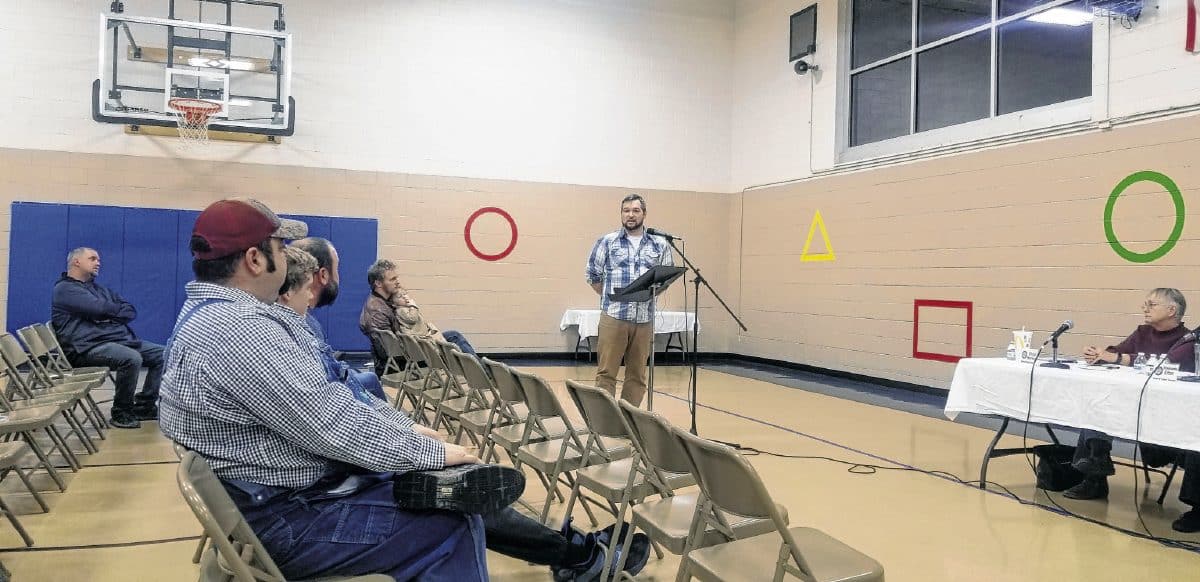
At a February school board meeting, Gist told the board he made a mistake and said he would have taken a different approach to responding to the subject of blackface.
Gist was also the subject of a petition on Change.org in support of him that over 2,000 signatures.
He released a statement to The Democrat apologizing for his comment and saying that he had been working to understand the situation, like how it was offensive and learning about the differences of others.
The school board ultimately voted in favor of Gist’s termination.
Gist had been given a “path” to return to Brown County Schools as a substitute teacher and assistant football coach next school year, explained board President Steve Miller Jr. The week prior, Gist and Hammack met to discuss a plan.
Gist ultimately declined the offer, which resulted in the school board being tasked with approving his termination instead of his resignation, Miller said.
Gist clarified at the meeting that he did not refuse to take cultural training or other classes included in the plan; he only refused to resign as part of that path.
Many people attended the meeting to speak against the termination. Two others spoke in favor.
Jessica George, a friend and former employee of Gist’s, was one of the people who spoke in his defense.
“Were things done untastefully? Maybe. Were they done to cause malicious harm? I don’t think so. … He’s not a racist. That I can say 100 percent. I think I would know if he was. … I wouldn’t be friends with him if he was,” she said.
At the time Gist was terminated, the district did not have a social media policy that would have applied to him as a substitute teacher or coach. This fall, the school board unanimously approved changes to its policy book, which included a “{span}responsible use of social media” update.
9. Newspaper gets a third Blue Ribbon
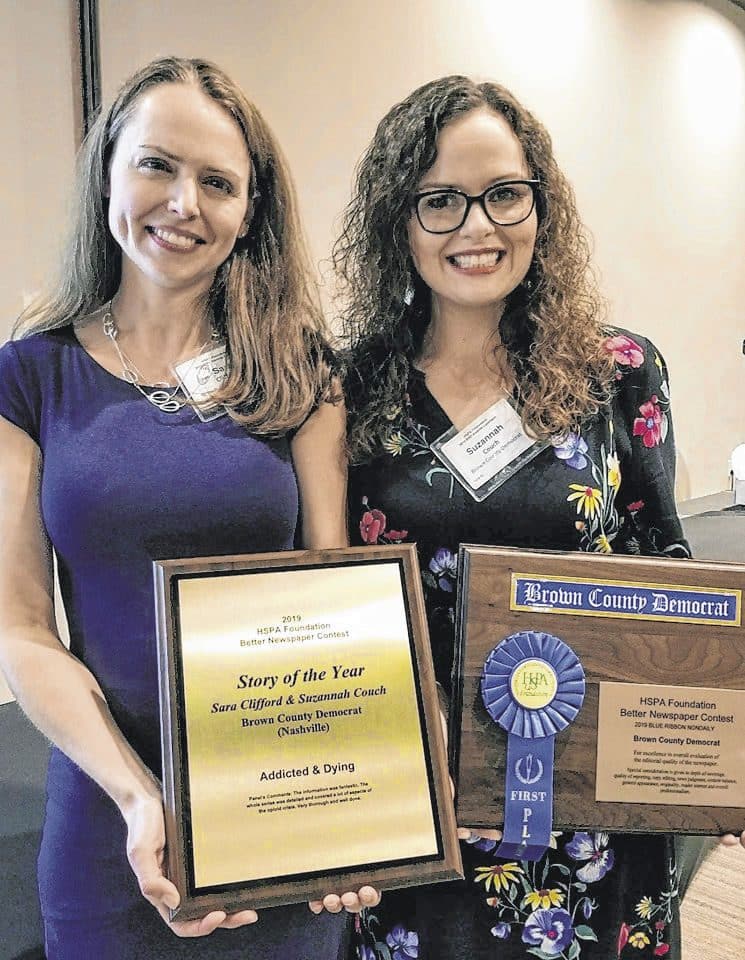
Brown County is once again home to the best nondaily newspaper in the state.
On Sept. 14, the Hoosier State Press Association awarded the Brown County Democrat the Nondaily Blue Ribbon, the highest honor for local print journalism.
This was The Democrat’s third Blue Ribbon in the past 10 years and its seventh since the award was created in 1972. The Democrat also has been a top-three finalist for the award nine of the past 10 years. The award recognizes the paper that does the best job of serving its readers, all variables considered.
Judges pointed out the number of stories that the newsroom publishes each week with just two-and-a-half news staff members, the quality and variety of reporting and storytelling, and the professional design of the product.
In addition to the Blue Ribbon, the newsroom won its second straight Story of the Year award among all stories submitted by Indiana newspapers of any size. This was for a portion of the Brown County Democrat’s Addicted & Dying series which included stories about grandparents raising grandchildren and other effects of the opioid epidemic on children; recovering users who are counseling other inmates; and a group of volunteers who stepped up to lead the fight against drug abuse here.
The newsroom also won 23 other awards in the contest for reporting, photography, newspaper design, headline writing and the website; swept the Best Community Service category for reporting that makes a difference in the community; and won the General Excellence award for overall performance in this contest for the 10th consecutive year.
The same weekend, the newspaper’s advertising staff also earned 10 awards, including five first places, for advertising ideas, design and special publications.
“I am extremely proud of our Nashville team,” said Bud Hunt, group publisher and vice president of AIM Media Indiana, the company that owns the Brown County Democrat.
“We are proud of our connection with readers. Thank you for allowing us to be part of your lives and tell your stories.”
10. Hard Truth Hills water service cases settled
Brown County Water Utility and the Town of Nashville had a date to meet in federal court in October. But a couple days before that was to happen, a settlement was reached.
It resolved a years-long dispute about which entity was to serve the Hard Truth Hills development with water, and also put to rest BCWU’s request pending with the state to raise Nashville customers’ water rates by more than 150 percent. Many Nashville residents and business owners had objected to that request, saying it would be more than they could bear. BCWU said that it needed to make changes because of imbalances in the way some groups of users were charged relative to the amount of water they consumed.
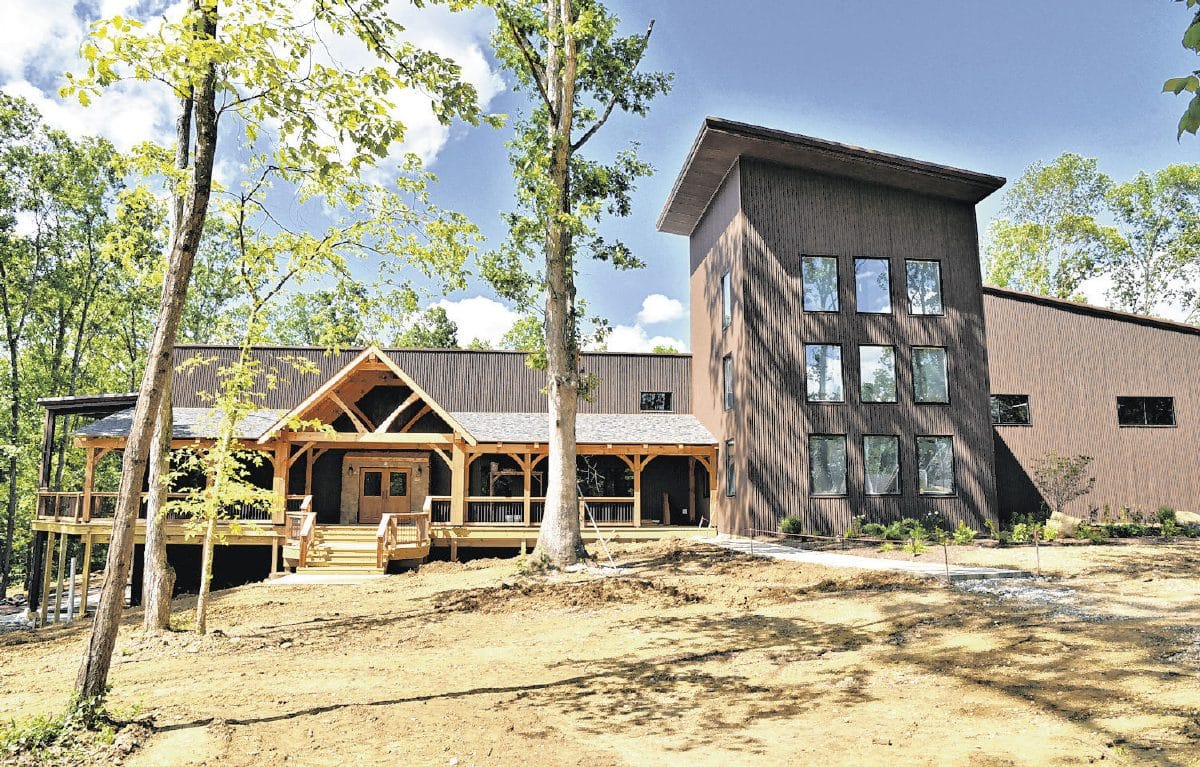
In the end, the parties agreed that Hard Truth Hills would become a direct customer of Brown County Water Utility instead of Nashville Utilities. However, the town and BCWU will share the water revenue from the existing buildings at Hard Truth Hills and all future development on the property until 2051. That’s the year when the town’s current water service contract with BCWU expires.
In addition, the parties agreed to measures of improved communication about rate proposals and service area changes in hopes that neither one feels like they have to go to court to stand up for their agency’s best interests.
In the two-plus years that the cases played out before state and federal agencies, the town spent $401,088.19 on attorney fees for those cases, not counting two months’ worth of bills that hadn’t been received at the time of the settlement.
A transcript for a state utility commission hearing, released after the settlement was signed, showed that BCWU spent $747,399 on attorney fees during the period of this lawsuit; “at least 50 percent of it” was related to these cases, board President Ben Phillips testified.
BCWU expects to receive about $7,700 in additional income per year from picking up Hard Truth Hills as a direct water customer, according to that transcript.
It’s all the same water; Nashville Utilities buys nearly 100 percent of the water it resells to Nashville customers from BCWU.
Honorable mention: Keith Fleener retires from the Brown County Democrat
Not to be too self-serving, but we had to mention this headline too because it did receive a lot of votes, and because not a week goes by that someone doesn’t walk into our office and ask, “Where’s Keith?”
Fleener quietly retired from The Democrat in November after greeting customers and selling advertising for 40 years and seven months.

